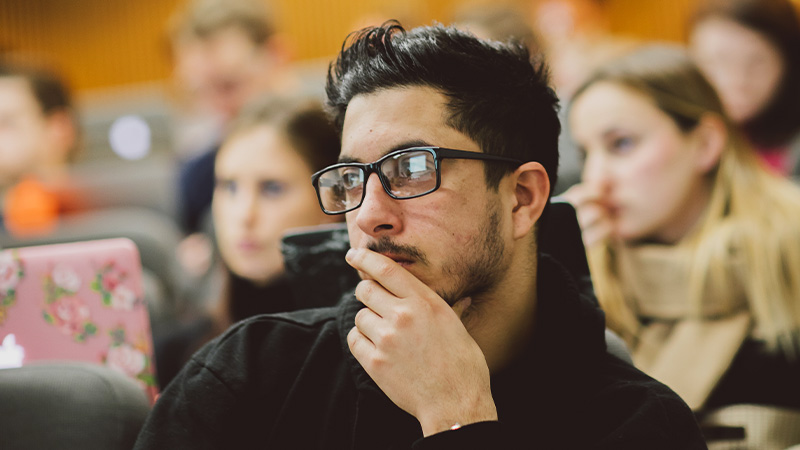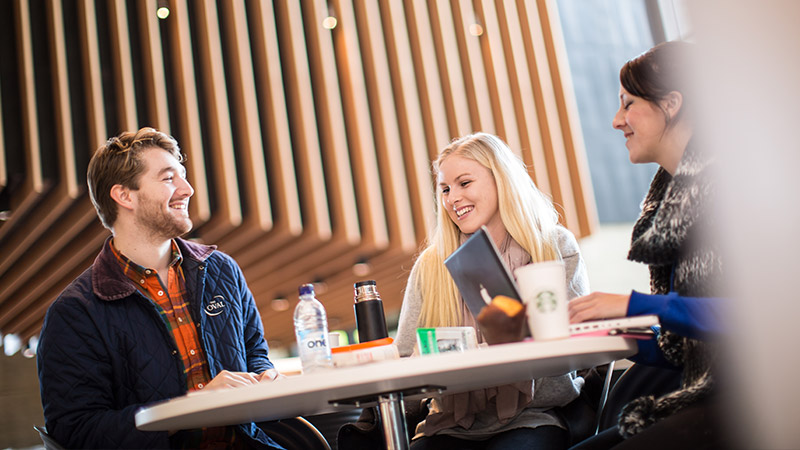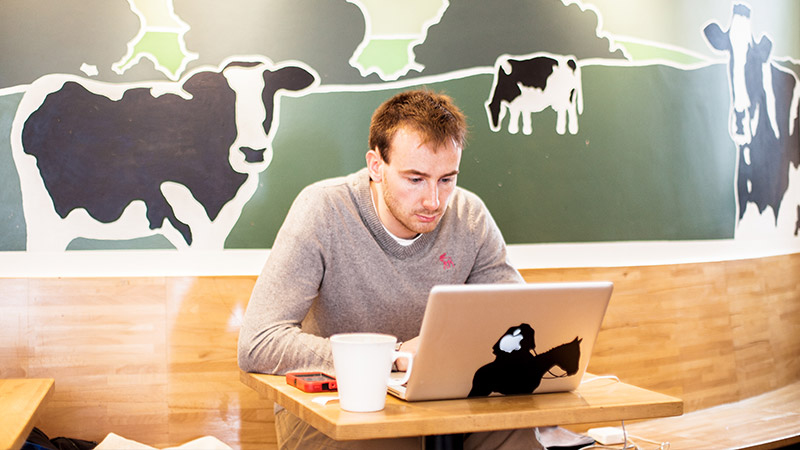Anthropology
GradDip
Key facts
Start dates
January 2025 / September 2025 / January 2026 / September 2026
Location
Course length
Full time: 9 months
Part time: 18 months
Department
Overview
On our Graduate Diploma in Anthropology, you will explore the holistic and comparative breadth of anthropology. And study humans from a variety of social, cultural, biological and evolutionary perspectives.
Our course allows you to gain a qualification in anthropology at advanced undergraduate level as:
- a graduate from another discipline
- or if you have equivalent qualifications or work experience.
We are one of the few universities in the UK to teach social and biological anthropology side by side.
You will be part of a dynamic community of research scholars undertaking internationally recognised and world-leading research. And benefit from excellent learning resources, both at Oxford Brookes and at Oxford’s museums and libraries including:
- the Bodleian Library
- the Radcliffe Science Library
- the Pitt Rivers Museum
- the Museum of Natural History.
You also have the option to go on a field trip to Apenhuel Primate Park in the Netherlands.

How to apply
Entry requirements
Specific entry requirements
An undergraduate degree or equivalent qualification is required. However, all applications are considered on their merits and we will consider applicants who do not meet the required level, if they can demonstrate through qualifications or experience, they have the knowledge, capabilities and commitment necessary.
Please also see the University's general entry requirements.
English requirements for visas
If you need a student visa to enter the UK you will need to meet the UK Visas and Immigration minimum language requirements as well as the University's requirements. Find out more about English language requirements.
Pathways courses for international and EU students
We offer a range of courses to help you meet the entry requirements for your postgraduate course and also familiarise you with university life in the UK.
Take a Pre-Master's course to develop your subject knowledge, study skills and academic language level in preparation for your master's course.
If you need to improve your English language, we offer pre-sessional English language courses to help you meet the English language requirements of your chosen master’s course.
Terms and Conditions of Enrolment
When you accept our offer, you agree to the Terms and Conditions of Enrolment. You should therefore read those conditions before accepting the offer.
Application process
Applications for the Graduate Diploma in Anthropology should be made direct to the University.
Application checklist:
- application form, fully completed and signed
- a personal statement (section 10 of application form)
- one recent academic reference
- second reference (academic, employer or character reference)
- copy of degree certificate(s) and/or course transcripts
- English Language Certificate.
Tuition fees
Questions about fees?
Contact Student Finance on:
Tuition fees
Fees quoted are for the first year only. If you are studying a course that lasts longer than one year, your fees will increase each year.
The following factors will be taken into account by the University when it is setting the annual fees: inflationary measures such as the retail price indices, projected increases in University costs, changes in the level of funding received from Government sources, admissions statistics and access considerations including the availability of student support.
How and when to pay
Tuition fee instalments for the semester are due by the Monday of week 1 of each semester. Students are not liable for full fees for that semester if they leave before week 4. If the leaving date is after week 4, full fees for the semester are payable.
- For information on payment methods please see our Make a Payment page.
- For information about refunds please visit our Refund policy page
Additional costs
Please be aware that some courses will involve some additional costs that are not covered by your fees. Specific additional costs for this course are detailed below.
Optional costs
| Additional costs | Amount (£) |
|---|---|
| Travel and associated costs if relevant when undertaking work placements. | £30-700 per year |
You may have the opportunity to visit a zoo or animal sanctuary in the UK or mainland Europe. |
£40-150 |
It’s your responsibility to cover print / binding costs where coursework submission is required. Please note that a lot of the coursework is now submitted online. |
From £30 |
| You may choose to purchase books to support your studies. Many books on our reading lists are available via the Library, or can be purchased secondhand. | £20-60 per book |
Accommodation fees in Brookes Letting (most do not include bills) |
£94-265 per week |
Accommodation fees in university halls (bills included, excluding laundry costs) |
£122-180 per week |
Graduation costs include tickets, gowning and photography. Gowns are not compulsory but typically students do hire robes, starting at £41. |
Typically £0-200 |
Students are responsible for their own travel to and from university for classes. BrookesBus travel is subsidised for full-time undergraduate students that are on a course with a fee of £9,250 or more, or living in an Oxford Brookes hall of residence. There is an administration fee for the production of a BrookesKey. |
From £10 |
Funding your studies
Financial support and scholarships
Featured funding opportunities available for this course.
All financial support and scholarships
Learning and assessment
Throughout the course, you will receive intensive training in selected aspects of anthropology at advanced undergraduate level.
If you wish to continue with anthropology at masters or a higher level, such as PhD, this course can constitute a conversion course.
You can choose to follow a pathway focusing on social or biological anthropology, or take advantage of our broad expertise by studying both.
There are two compulsory modules that you will be able to choose from our three core components in theory and methods. You will also put together a programme of six additional modules according to your aims and interests, including an option for independent study with an individual academic supervisor.

Start this course in January or September
You have the option to start this course in January. You will study a range of modules between January and May. During the summer months of June, July and August you will study further modules. Between September and December you will complete your final modules.
Study modules
Please note: As our courses are reviewed regularly as part of our quality assurance framework, the modules you can choose from may vary from those shown here. The structure of the course may also mean some modules are not available to you.
Learning and teaching
You will be provided with a broad range of learning experiences, including:
- independent study
- small group work
- seminars
- lectures.
You also have the option of a field trip with MSc students to Apenhuel Primate Park in the Netherlands.
Field trips
You have the opportunity to join MSc students on their annual trip to Apenhuel Primate Park in the Netherlands. This carries an additional cost. Please see the Additional costs section of this page for details.
Research
Research can be undertaken in the following areas:
- anthropology of art
- anthropology of food
- anthropology of work, and play
- anthropology of gender
- social anthropology of Japan, South Asia and Europe
- social anthropology of family, class and gender in Urban South Asia
- basque studies
- culture and landscapes
- environmental archaeology and palaeo-anthropology
- environmental anthropology
- environmental reconstruction
- human origins
- human resource ecology
- human–wildlife interaction and conservation
- physical environmental processes and management
- primate conservation
- primatology
- quaternary environmental change
- urban and environmental studies.
Research centres:
- Europe Japan research centre
- Anthropology centre for conservation, environment and development.
Consultancy:
- Oxford Brookes archaeology and heritage (OBAH).

After you graduate
Career prospects
Many students choose the graduate diploma as a route to further study, continuing their education at master's and PhD level. However, anthropology graduates go on to a variety of careers including:
- overseas development aid
- environmental maintenance
- education
- eco-tourism
- urban planning
- civil service
Programme changes:
On rare occasions we may need to make changes to our course programmes after they have been
published on the website. For more information, please visit our
changes to programmes page.
